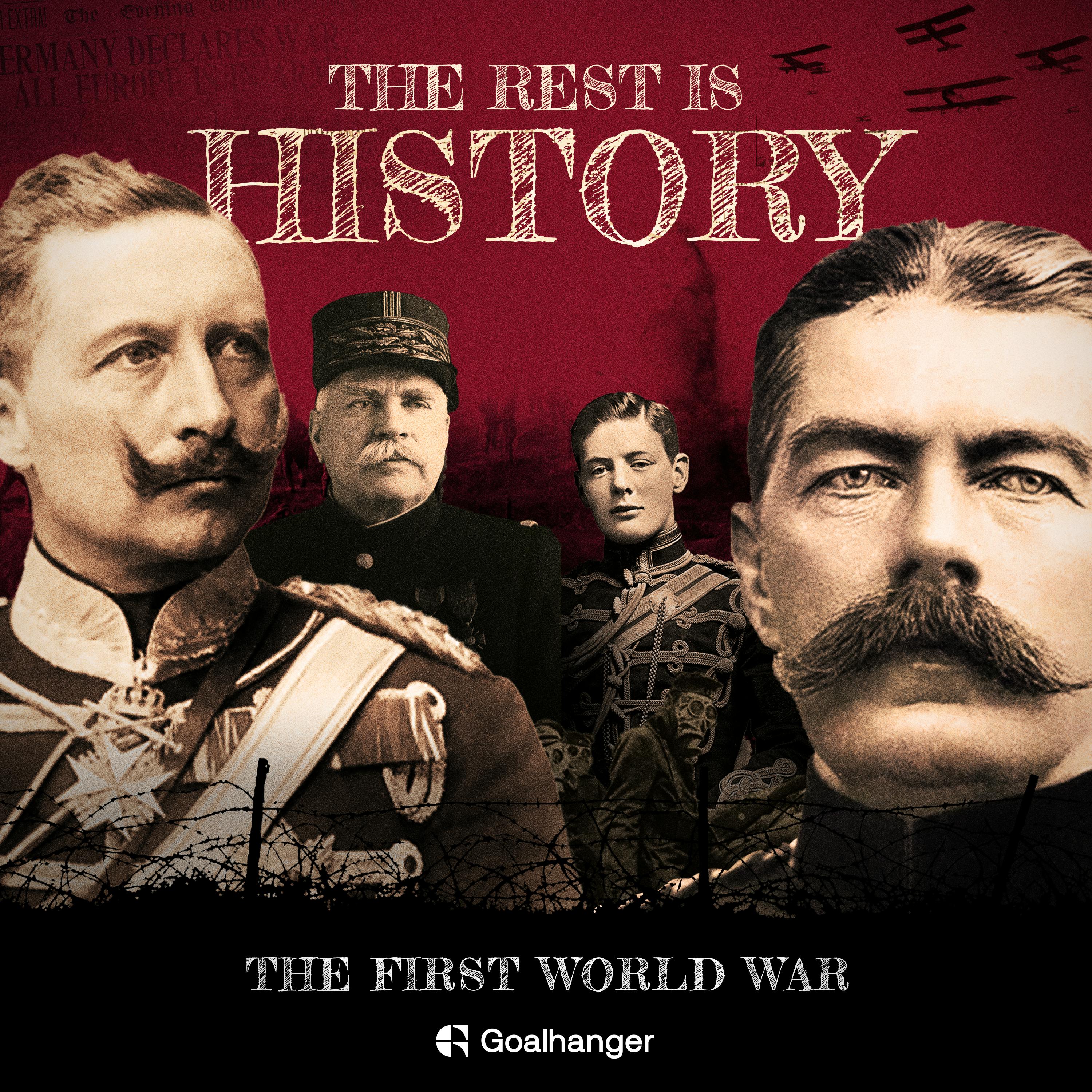How a Desperate Gamble Started World War I
The Main Idea in a Nutshell
- Germany kicked off World War I with a risky, all-or-nothing invasion of Belgium, and their army's brutal actions there immediately turned world opinion against them.
The Key Takeaways
- A Risky Plan: Germany's leaders felt trapped between two big enemies (France and Russia), so they created a desperate plan called the "Schlieffen Plan" to quickly knock out France by invading through neutral Belgium before Russia's giant army could get ready.
- Belgium Fights Back: Tiny, neutral Belgium refused to let the German army pass through and fought back surprisingly hard, which slowed the Germans down and made Belgium look like a heroic underdog to the rest of the world.
- The "Huns" Are Born: German soldiers, paranoid about being ambushed by civilians and under huge pressure to move fast, committed terrible acts, killing innocent people and burning towns. This gave their enemies the perfect propaganda weapon to paint all Germans as evil barbarians.
Fear Was the Fuel: The hosts argue that Germany's aggression wasn't just about wanting to conquer people; it was mostly driven by a deep fear that if they didn't strike first, their country would be crushed.
Fun Facts & Key Numbers:
- Fact: World War I ended up killing around 20 million people.
- Fact: The German plan gave their army just 6 weeks to defeat all of France.
- Fact: In the first few days of the war, German troops executed at least 850 Belgian civilians.
Important Quotes, Explained
Quote: "> Only in defense of a just cause shall our sword fly from its scabbard. The day has now come when we must draw it against our wish..."
- What it Means: The German Chancellor is telling his country, "We are a peaceful nation, and we absolutely did not want this war. We are only fighting now to defend ourselves because others have forced us into it."
- Why it Matters: This shows that regular Germans truly believed they were the good guys. This feeling of being the victim united the entire country and made them willing to support the war.
Quote: "> [You are fighting] just for a scrap of paper."
- What it Means: This is what the German Chancellor angrily said to the British ambassador. The "scrap of paper" was the official treaty that guaranteed Belgium would be a neutral country. He couldn't believe Britain would go to war over an old treaty when Germany's survival was at stake.
- Why it Matters: This was a huge PR disaster for Germany. The British used this quote on posters to prove that the Germans were bullies who didn't care about their promises or international law.
The Main Arguments (The 'Why')
- In a simple, numbered list, here are the main reasons the hosts give for what happened.
- First, the hosts argue that Germany invaded Belgium because of a military plan born from desperation. They felt they had no choice because they were terrified of fighting a long war against both France and Russia at the same time.
- Next, they provide evidence that the German soldiers committed atrocities against civilians. But they explain it wasn't random cruelty; it was driven by panic, fear of being shot in the back by civilian fighters (called Francs-Tireurs), and the immense pressure to win quickly.
- Finally, they point out that these actions, especially burning down a famous university library, destroyed Germany’s reputation as a cultured, advanced nation and made it easy for their enemies to paint them as savage "Huns."
- In a simple, numbered list, here are the main reasons the hosts give for what happened.
Questions to Make You Think
Q: Did the Germans really think they were the good guys?
- A: Yes, absolutely. The podcast makes it clear that from the German Emperor (the Kaiser) down to the average soldier, they genuinely believed that Russia and France had forced the war on them and that they were fighting to protect their homeland.
Q: Why was invading Belgium such a big deal?
- A: Because Belgium was officially neutral, like Switzerland. All the big countries, including Germany, had signed a treaty promising to leave it alone. By marching its army through, Germany broke a major international law, which gave Britain the perfect reason to declare war on them.
Q: Were the stories about German soldiers doing horrible things in Belgium true?
- A: The text says it's complicated. German soldiers really did execute hundreds of civilians and burn down parts of towns. But the wildest stories used in Allied propaganda—like soldiers impaling babies on their bayonets—were almost certainly exaggerated or completely made up to make the enemy seem as evil as possible.
Why This Matters & What's Next
- Why You Should Care: This story shows how one of the deadliest wars in history started not just because of one evil leader, but because of fear, paranoia, and a series of bad decisions that spiraled out of control. It's a powerful reminder of how easily propaganda can shape our view of an enemy and how quickly a conflict can become horribly brutal.
- Learn More: To get a feel for what life was like for soldiers in this war, check out the movie 1917. It's an intense film that follows two British soldiers on a mission and gives you a stunning look at the trenches of the Western Front, the very battlefield that was created by this initial invasion.

